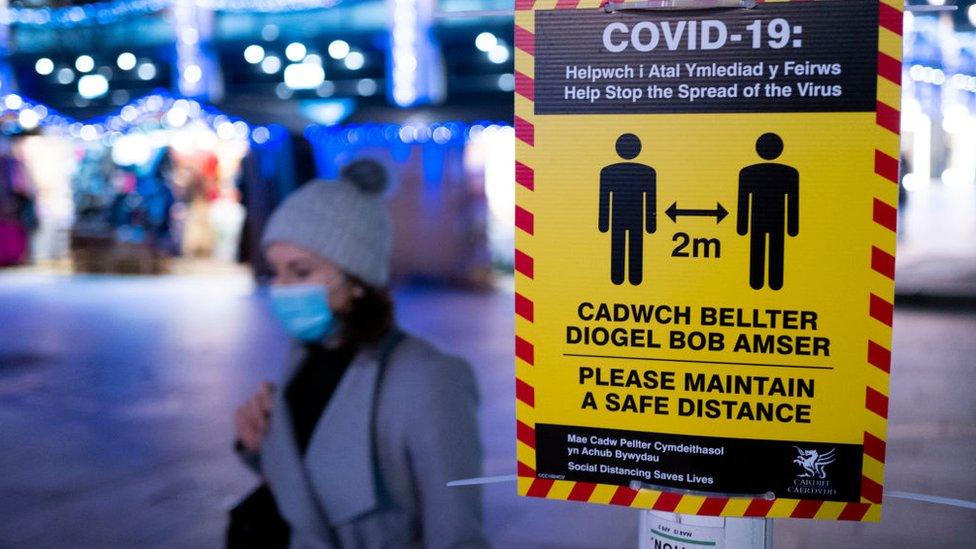Covid: Why are Wales' rules not changing?
- Published
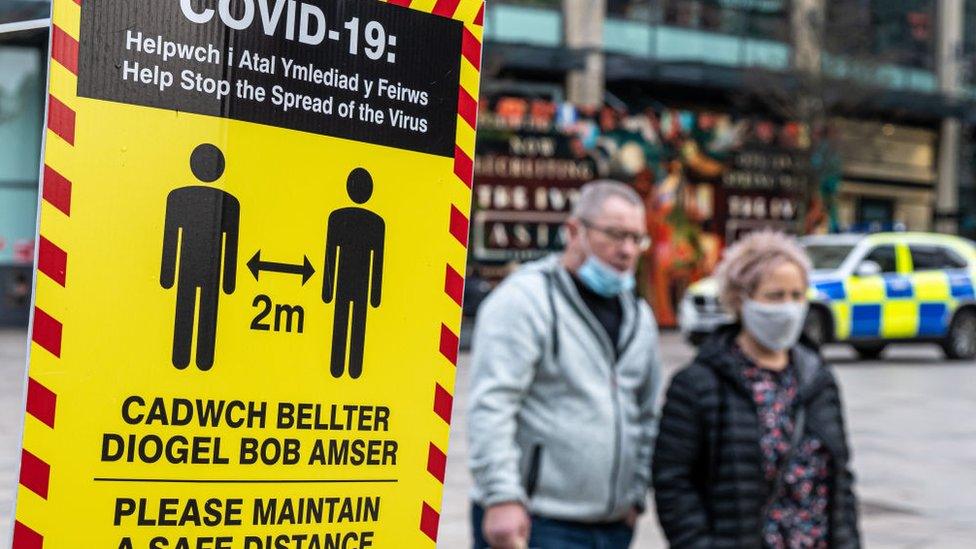
Wales' Covid rules are being reviewed weekly by the Welsh government
Coronavirus restrictions will remain in place, with people calling for them to be relaxed "factually wrong", according to Wales' first minister.
Mark Drakeford said rules, including limits on fans at sports matches and mixing with others, would remain for at least another week.
He said Wales was in "the eye of the storm of the Omicron wave" with more people falling ill every day than at any point during the pandemic.
Why is Wales continuing with the rules?
How do rules compare to other places?
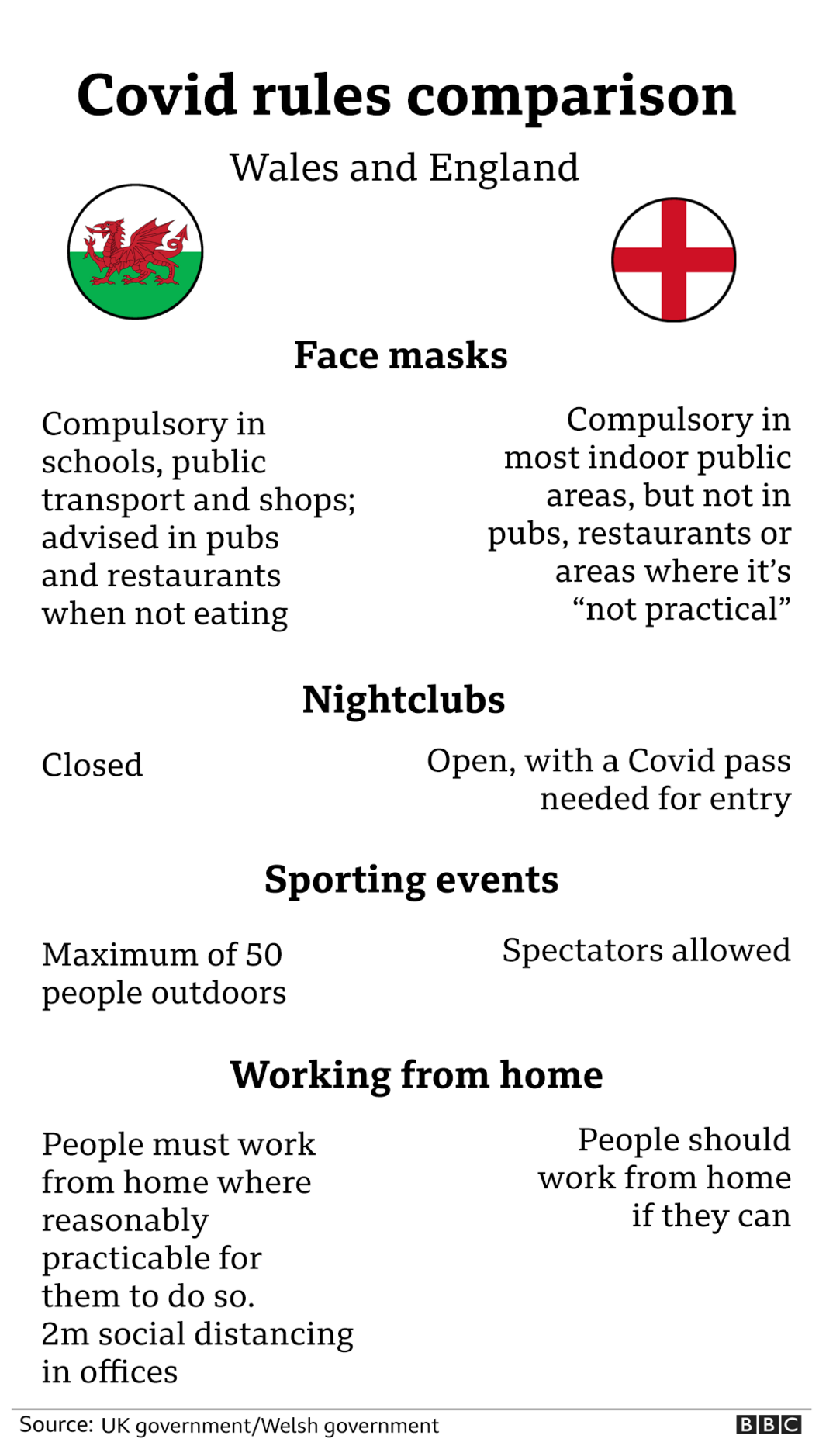

Many people looked enviously over the border during the festive period as full houses watched sporting matches and people celebrated the start of 2022 in busy pubs.
Some have called for Wales to mirror what is happening in England, but Mr Drakeford suggested it was England that was out of step, not Wales.
"The one country that stands up as not taking action to protect its population is England," he said.
"Here in Wales, we continue to do everything we can to protect people from the impact of this new form of the virus and the astonishing speed with which people in Wales are falling ill from it.
"That has always been the course of action that the Welsh government has taken and that puts us absolutely in the mainstream.
"The mainstream alongside Scotland, Northern Ireland and the Republic of Ireland, countries right across Europe, putting in place."
How bad is the current situation?
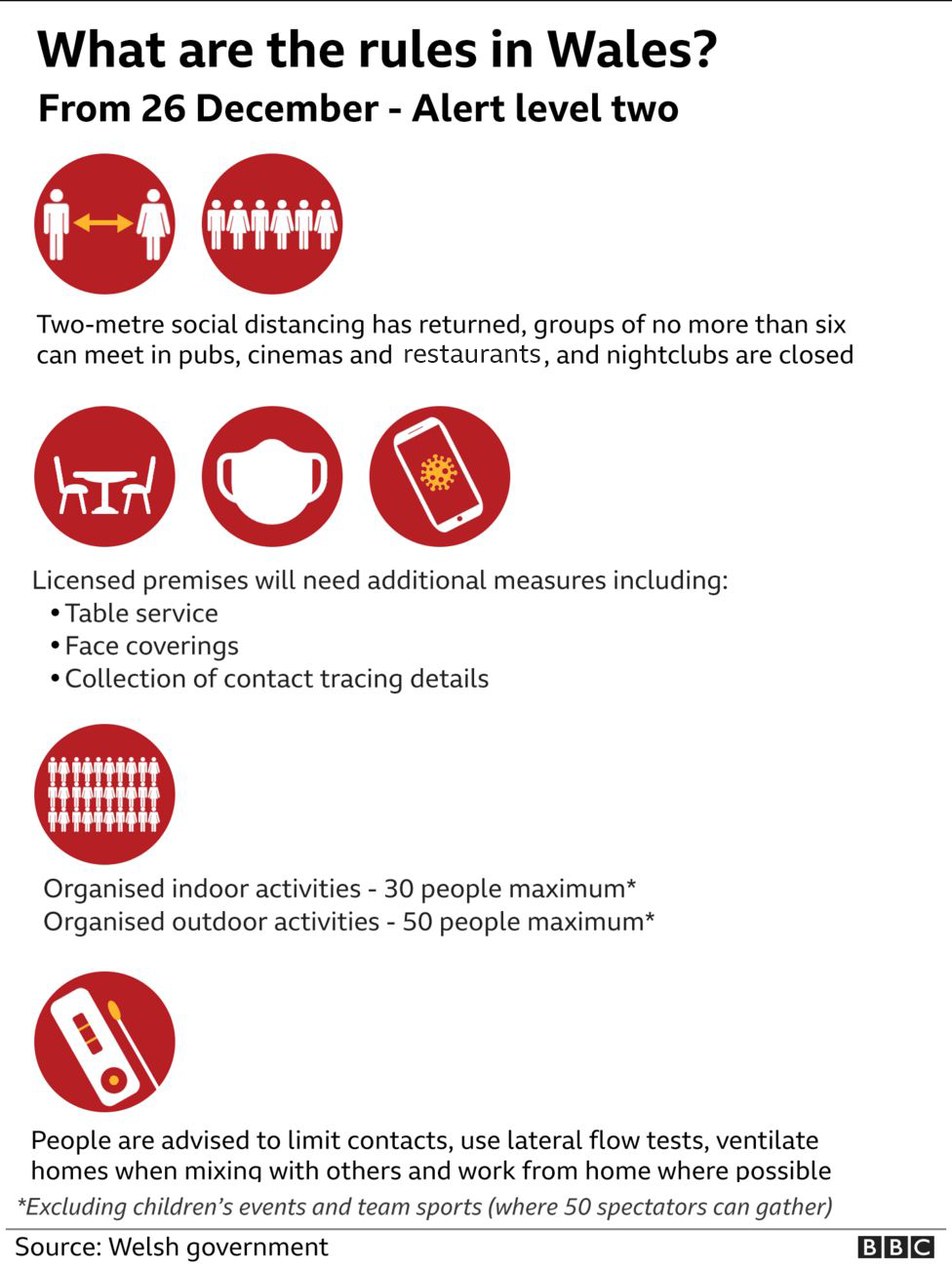

When he announced new rules just before Christmas, Mr Drakeford said Wales was "heading into the eye of the storm of the Omicron wave", but has now said the storm "has arrived in Wales".
"We have a higher number of people falling ill with coronavirus every day than at any time in the whole of the pandemic, astronomically high positivity rates, hospitalisations going up every day.
"We are in for a tough few weeks ahead and the review says that we are not in a position to withdraw any of the protections to be put in place while we're still facing the month of January with this rapidly rising wave of the new form of coronavirus."
What about other expert views?

Mr Drakeford says experts calling for more relaxed rules are wrong
Prof John Watkins from Cardiff University is among experts calling for a return to pre-Omicron restrictions, saying booster jabs are reducing risks to people.
However, when asked, Mr Drakeford said: "I think they are wrong, very straightforwardly and factually wrong.
"The number of people in a Welsh hospital suffering with coronavirus is 994 people."
He said 21 people died from the illness in figures published on Thursday, adding: "The idea that this is somehow an illness we can all afford to take lightly and reduce the level of protections that are there for people in Wales, I simply don't think it bears any connection with actual position that we are facing."
Is there evidence restrictions have worked?
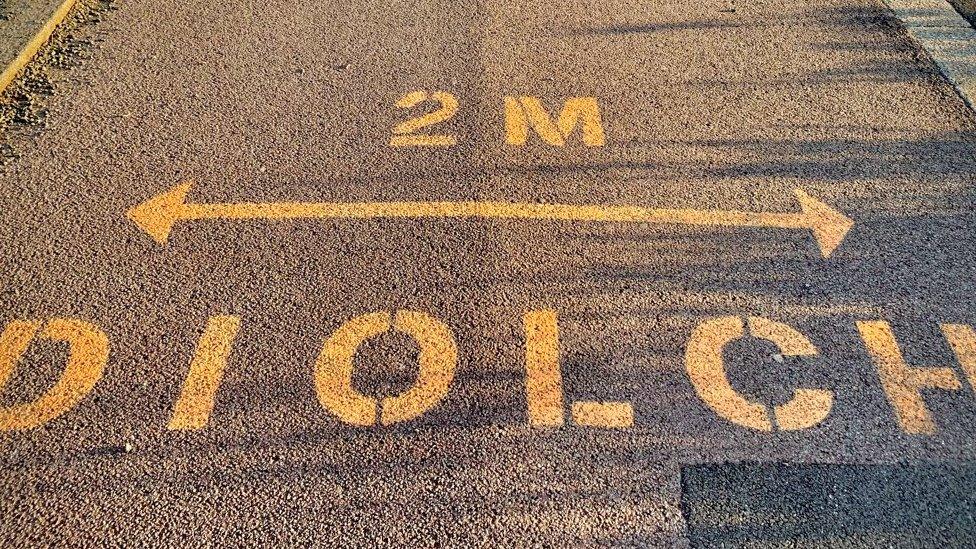
Some form of restrictions have been in place for much of the past two years
Wales' case rate is 2,285 per 100,000 people, higher than most parts of England, where there are far fewer rules.
"Well again, I think that is a generalisation that doesn't take us very far because the hotspot areas in England are certainly further into this wave than we are," he said.
"An England-wide figure disguises the very big regional variations."
Should there be stricter rules for the unvaccinated?
Mr Drakeford said he tried "not to lose patience" with the unvaccinated, adding: "What I always think is this, is that someone who deliberately chooses not to take advantage of the vaccination programme, when they fall ill, they will expect somebody else to put themselves in harm's way in order to look after them and it simply isn't fair.
"Why would you choose to behave in your own life in a way that causes that risk to other people?"
However, he said in the push to reach people with the booster campaign, he hoped to pick up "quite significant numbers of people coming forward for vaccination for the first time".
Are rules crippling businesses?

New Year's Eve in Cardiff was quiet
Mr Drakeford was asked if support for businesses such as closed nightclubs is enough - with one owner saying he will get £15,000 but faces losses of up to £70,000.
"Well, it's £120m that's being made available, which means that it will be the most generous form of support that we are able to mobilise and from 10 January, businesses will immediately see the cheques coming through the door, based on the local authority's ability to do that for non-domestic rate payers.
"And then from 17 January, firms will be receiving money through the economic resilience fund as well.
"Given everything that the government is having to do, everything our local authority colleagues are having to do, given the fact that we've had Christmas and the new year, and our organisations like everybody else are suffering from people falling ill and not being in the workplace, I think we have moved as fast as we are able to and businesses know the money is coming."

Nightclubs closed their doors on 26 December
What about the Six Nations?
The Six Nations kicks off in a matter of weeks, with Wales' first home match against Scotland on 12 February and 72,000 fans are expected to attend that game, as well as subsequent fixtures against France and Italy.
Mr Drakeford said the government would continue working with the Welsh Rugby Union and reviewing the regulations weekly.
"If it is possible to play games at home safely that do not put people at risk, of course that is what we would want to do," he said.

Scotland, France and Italy are due in Cardiff - but will there be fans?
He praised the decision to cancel the Scotland fixture in March 2019 early in the pandemic, offering Cardiff's Principality Stadium as a field hospital and the successful Covid pass scheme for the autumn games.
He added: "They have always played their part in helping to keep people in Wales safe and I'm sure that they will want to go on making sure that reputation for working closely with the Welsh government and doing the right thing is the way that their decision-making will be guided."
He also said it was not behaviour in the stadium he was worried about: "It's the way that people get to the stadium, it's the way the people leave the stadium, it's the way that people behave around the stadium and there is lots of evidence (from around the world) that these are risky contexts.
"And when the risk level is as high as it is in Wales today, it just isn't a proportionate thing to do to add to that risk, to drive more people to be ill, more people in hospital, when the system itself is under such enormous pressure."
- Published7 January 2022

- Published7 January 2022

- Published27 May 2022

- Published6 January 2022
